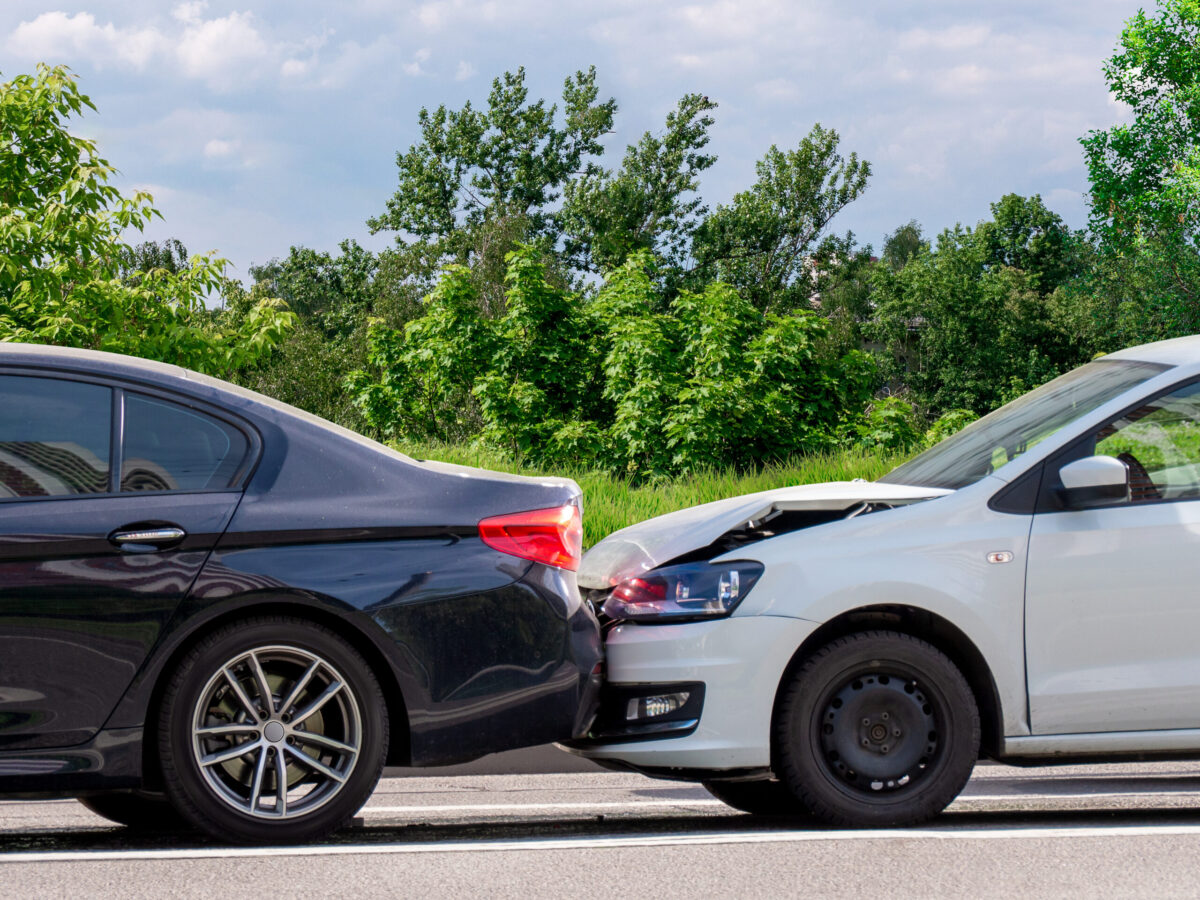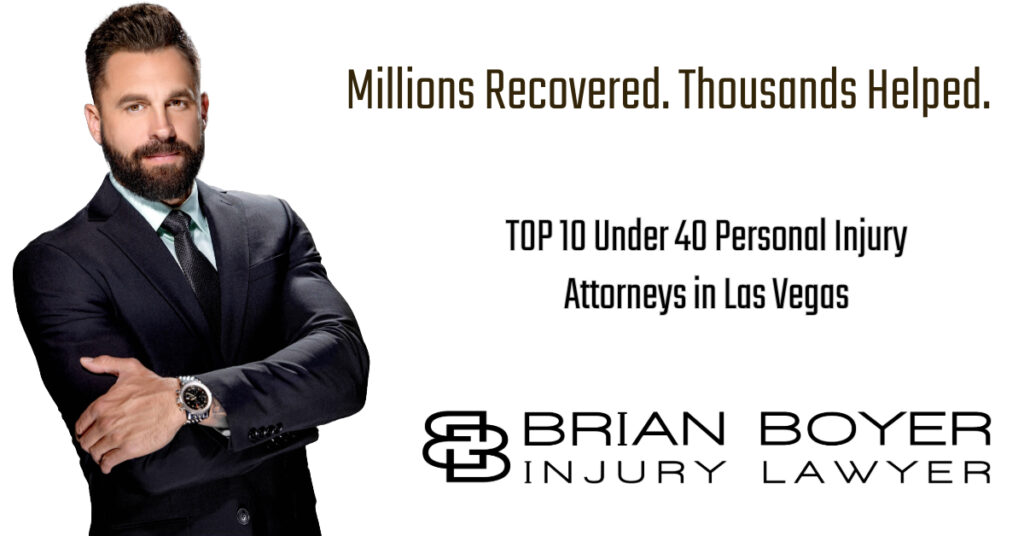Although rear-end accidents account for a large portion of the car crash cases that we handle, it doesn’t mean they are the easiest to pursue. It is safe to assume that in the instance of a rear-end accident, the driver in the rear is always at fault. Contrary to popular belief, that isn’t always the case. From driver negligence to deceptive insurance practices, even the most straight-forward seeming accident case may result in a battle over negligence.
So, if you find yourself asking, “should I get a lawyer if I was rear-ended?” this article is for you.
Our answer will hinge on a variety of factors, including injuries sustained, property damage, causation, negligence and insurance policies at play. Below we have comprised a list of everything you need to know following a rear-end collision:
On This Page
Establishing Fault In a Rear-End Accident
In most cases, the rear driver in a rear-end accident can be assumed to hold the most percentage of fault in a crash. This is due to the fact that drivers are required to issue a duty of care while operating a motor vehicle in the State of Nevada. Part of this duty requires issuing proper attention to the road at all times and maintaining a safe following distance from the vehicle directly in front of you. That said, it does not always imply that the rear-driver is at fault.
Some of the most common instances where the lead driver may share fault include:
- The front-driver’s brake lights were not working;
- The front-driver reversed into the rear vehicle;
- The front-driver engaged in an unsafe lane change;
- The front-driver stopped in a steady-flow of traffic without reason or warning.
Proving the front-driver was responsible in a rear-end collision requires various pieces of evidence, including police reports, witness testimony, dashcam footage and any video or photos from the scene. An experienced car accident lawyer will help you collect and preserve this evidence to ensure a successful case in the event you file a persona injury claim.
Nevada’s fault laws explained
In the State of Nevada, accident victims have the advantage of at-fault state laws. What this means is the at-fault driver and/or their insurance company are responsible for compensating the not-at-fault driver for their damages.
Conversely, in a no-fault state, you are only usually eligible to file a claim through your own PIP coverage and maintain minimal rights in terms of suing for damages.
Since Nevada is a fault state, if someone rear-ends you in Las Vegas, you can collect compensation directly from them and their insurance company.
If you’ve been injured in a rear-end accident, it is highly advisable that you contact a Las Vegas personal injury lawyer to help you build your injury claim and protect right to fair compensation.
When to call a personal injury lawyer after a rear-end accident
We get calls all of the time from accident victims who wish to sue only for property damage. Although you are free to do this if you choose, our law firm will not be able to assist with this legal avenue as we only handle accident claims with injury. That said, if you find yourself questioning “should I call a lawyer if I was rear-ended?” you must also be able to answer “yes” the below two questions:
- Were you injured?
- Was the other driver at-fault?
Additional considerations include, but are not limited to:
- Is the insurance company denying liability?
- In the event the other driver is uninsured or underinsured, do you have UM/UIM coverage?
If you answered “yes” to the first two questions, it is worth considering a free consultation with a rear-end accident attorney.
Most injury lawyers in Nevada offer free consultations to accident victims.
Common injuries from rear-end crashes
Rear-end collisions can cause serious and even catastrophic injuries. In these types of crashes, the body is suddenly pushed forward and backward with such force that the following injuries can occur:
- Whiplash;
- Concussions;
- Soft-tissue injuries;
- Cuts and lacerations;
- Bruises and internal bleeding;
- Stress and anxiety;
- Bulging and herniated discs;
- Nerve damage;
- Brain damage;
- Broken bones;
- In severe cases, amputations.
Following a rear-end crash, symptoms may not be immediately apparent. Therefore, it is recommended that injury victims seek immediate medical examination. Even if you feel you are “not that injured,” in many cases the adrenaline from a crash can make your body numb to injuries as our natural fight-or-flight response.
What happens if the other driver is underinsured or uninsured in a rear-end collision?
As inflation continues to soar, as do insurance premiums. Unfortunately, not everyone on the Nevada roadways carries adequate insurance, let alone the State minimum coverage. In the event you are hit by an uninsured or underinsured driver, you may still have options for recovering. These options include, but are not limited to:
- File a claim through your own policy if you have UM/UIM insurance coverage.
- If the driver was operating a commercial vehicle or work vehicle at the time of the accident, discover if there is third-party liability.
- File a lawsuit against the other driver personally. Unfortunately, this does not always render successful as in most cases, a person who cannot maintain auto insurance typically lacks personal assets.
How a lawyer can help you fight against the insurance company
Insurance adjusters are not on your side. Following a crash, they may contact you to discover important details about the case. They may seem exceptionally friendly as a means of getting you to let your guard down. Be kind, but do not provide them with any potentially incriminating information.
If they do any of the following tactics, kindly let them know you are in the process of retaining counsel and your Las Vegas fender bender lawyer will be in contact with them:
- Ask for a recorded statement
- Ask if your injuries are pre-existing or minor
- Offer a quick, lowball settlement offer
- Dispute liability entirely
How a rear-end accident lawyer can help you
If you have become injured following a rear-end accident, an attorney can help you navigate the complex legal process so you can focus on what matters the most: recovering.
An experienced rear-end accident lawyer can help you by investigating the accident, preserving and collecting evidence, managing all insurance communications, and demanding a settlement amount that is fair and covers all current and future damages.
If your case doesn’t settle
If the insurance company refuses to offer a fair settlement offer for your damages, your personal injury attorney will likely file a lawsuit. Once a lawsuit is filed, your case will undergo pre-trial proceedings, which can include depositions, mediation, and/or arbitration.
In Nevada, most lawyers charge forty percent of all litigation winnings as there is much more work included in this process.
When to contact a rear-end accident attorney
You should seek legal counsel as quickly as possible following injury from a rear-end collision. By doing so, you are better protecting and strengthening your case in the event that you:
- Have injuries that require medical treatment.
- Have injuries that become worse with time or have left you temporarily or permanently disabled
- There is a dispute over liability
- The insurance company is requesting a recorded statement
- The insurance company is denying your claim
- The accident involves more than one vehicle
By working with an experienced Las Vegas rear-end accident attorney, you are protecting your right to fair compensation.
Considerations for calculating a rear-end collision settlement
Due to the variety of factors at play in every personal injury claim, every case is different. The settlement awarded will depend on factors that are proprietary to your claim. The following factors will heavily influence the final compensatory award for your case:
- Medical bills
- Lost wages
- Pain and suffering
- Liability
- Policy limits
These factors will be used when valuing your claim. Insurance companies are notorious for offering lowball settlement offers even once all of the evidence has been examined. That is why it is important to consult with an experienced rear-end accident lawyer to make sure you collect a fair amount.
Frequently Asked Questions
How long do I have to file a claim?
This answer will vary by state. In Nevada, the statute of limitations begins the date of the accident. This limitations period is typically two years; however, it is important to consult with an attorney to find out the limitations period for your specific case.
Do I need a lawyer to file a claim?
Hiring an attorney is not a legal requirement for pursuing a personal injury claim. That said, foregoing legal counsel puts you at risk of accepting less money than you are actually owed. Additionally, it could put you at risk of assuming partial liability for an accident. Therefore, hiring an attorney is always recommended.
What if I was partially responsible for the crash?
The State of Nevada adheres to a comparative negligence rule which means as long as you are less than 50% responsible for a crash, you can still recover damages. However, your percentage of damages is deducted by your percentage of fault.
What does it cost to hire a rear-end accident attorney?
If you have been involved in a rear-end crash with injury, the actual type of legal professional you will need is called a personal injury attorney. Most injury attorneys in Las Vegas, NV work on contingency, meaning they collect nothing upfront. Instead, they collect on the final settlement award.
“I was rear-ended, should I hire a lawyer?”
This depends on a variety of factors. That said, in most cases, yes–it is totally worth it.
For a minor fender-bender with no injury, you are better off filing an insurance claim yourself. This claim will cover property damage and in some cases, a rental car. However, if you are in a more significant crash that yields injury, it is usually always in your best interest to hire an attorney.
Nearly all personal injury attorneys in Nevada offers free consultations and contingency fee arrangements, so there is little risk to speaking with a lawyer to discover your options for recovery.
Related Content:

